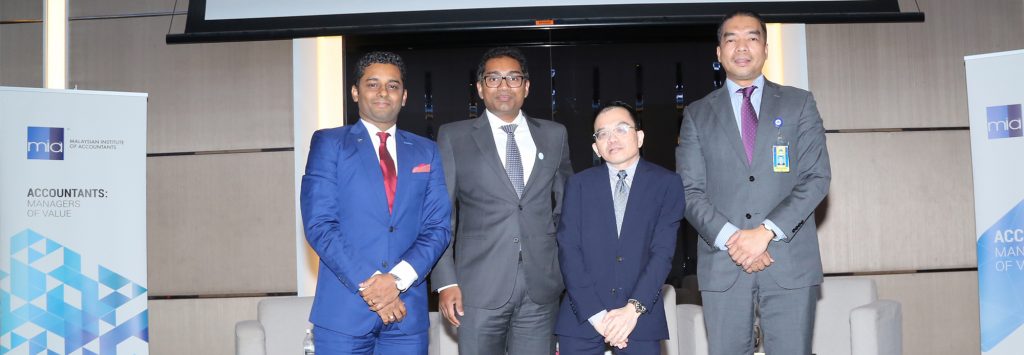By Nithea Nadarajah
The Special Voluntary Disclosure Programme (SVDP) announced during the tabling of the Budget 2019 is the third of its kind within the past five years, observed Renganathan Kannan, Partner, TraTax and moderator for MIA’s recent SVDP programme.
This SVDP which runs for eight months beginning from 3 November 2018 up to 30 June 2019, relates to the Year of Assessment (YA) 2017 and its preceding YAs. All taxpayers, including non-residents, are encouraged to voluntarily disclose any income previously omitted and falling within the following categories:
- Income not previously declared/under-declared, expenses over-claimed/not allowed, reliefs/deductions/rebates over-claimed; and/or
- Gains on disposal of assets (real property and/or shares in a real property company); and/or
- Stamping of instruments not previously stamped.
Disclosures in Good Faith
A significant element of this initiative (unlike previous voluntary disclosure programmes), is that any declarations made under this SVDP will be treated as bona fide by the Inland Revenue Board Malaysia (IRBM). “Any income disclosed under this SVDP will be accepted in good faith and not scrutinised further,” assured Arief Putera Mohd Sharipudin, Director, Quality and Innovation Management Division, Corporate Service Department, IRBM.
Sudharsanan Thillainathan, Senior Partner, Steven, Thiru & Sudhar said that based on his observations, the IRBM has indeed gone ‘all out’ to make public statements assuring taxpayers that the information reported will be accepted in good faith and that audit action will not be taken on the YA where the voluntary disclosure has been made. “This form of public assurance in itself, is a legally enforceable obligation on the part of the IRBM,” he opined.
Reduced Penalties
The other salient aspect of this SVDP most beneficial to taxpayers is the reduced penalty charge on the understatement of taxes amounting to 10% (applicable until 31 March 2019) and 15% (applicable between 1 April 2019 to 30 June 2019). This is a far cry from the prevailing tax laws where the penalties start with a minimum of 80% to a whopping 300%. Naturally, once this SVDP comes to an end, the IRBM will revert to the current legislative procedures and severe penalties.

Pay Up Promptly
Chow Chee Yen, Tax Consultant, advised that the voluntary disclosures made under this SVDP are deemed inadequate without the payment of taxes attributable to it. Although the IRBM has given the assurance that the relevant Notices of Assessment or Additional Assessment, will be immediately raised upon receipt of written declarations, unforeseen delays cannot be ruled out.
Exceptions to the SVDP
The SVDP also includes taxpayers currently under tax audit or investigation exercise but explicitly excludes cases under the Special Commissioners of Income Tax (SCIT) and criminal tax investigation. Although the IRBM will readily accept voluntary declarations made by taxpayers undergoing audit, the information received may not be treated as bona fide since the audit exercise has yet to be concluded. It is also possible that the IRBM’s findings during the audit exercise may differ from the voluntary disclosures made. If the taxpayer disagrees with the outcome of the audit findings, an appeal can always be made directly to the SCIT vide the submission of the Form Q.
Arief Putra also noted that once an audit or investigation exercise has concluded with both parties reaching an agreement, then a voluntary disclosure under the SVDP is futile. “Why open it again?” he asked.
Nowhere to Hide
As Malaysia is now party to the OECD’s Common Reporting Standard (CRS) to facilitate the Automatic Exchange of Information (AEOI) between participating countries, the government is privy to cross-border financial information such as offshore banking accounts held by Malaysians overseas. With technologies such as big data and tax data analytics facilitating tax transparency and traceability, the IRBM now has access to an astronomical amount of information, be it local or international, enabling it to discern if taxes are being paid accordingly. Therefore, it is recommended to leverage on the SVDP, because once it ends, the IRBM is expected to come down strongly on errant taxpayers.
Accountants are also urged to ‘play their part’ by providing timely advice to their clients regarding the attractive terms offered under this initiative and to also appropriately liaise with the IRBM on their behalf.







